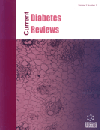
Full text loading...

Improving medication adherence plays a crucial role in preventing adverse complications of type 2 diabetes.
This study aimed to determine the effect of a health education program on knowledge, medication adherence, and HbA1c in rural patients with type 2 diabetes.
This experimental study was conducted in Ilam County, Iran. Participants were selected via multistage cluster sampling and randomly assigned to either the intervention group (n=43) or the control group (n=42). The intervention group underwent a one-month educational program based on self-regulation theory, consisting of 12 sessions, while the control group received no educational intervention. Data were collected at baseline, three months, and six months using a diabetes knowledge test (DKT), the Iranian version of the Morisky Medication Adherence Scale-8 (IVMMAS-8), and laboratory measurements of HbA1c. Statistical analysis was performed using SPSS version 16, employing chi-square tests, independent sample t-tests, repeated-measures ANOVA, and Bonferroni correction at a significance level of 0.05.
After 3 and 6 months, the intervention group showed significant improvements in diabetes knowledge and medication adherence and a significant reduction in HbA1c levels compared to the control group (p<0.001). No significant changes were observed in the control group over time (p>0.05).
This study demonstrated that health education based on self-regulation theory can effectively increase knowledge, improve treatment adherence, and decrease HbA1c levels in rural patients with type 2 diabetes.

Article metrics loading...

Full text loading...
References


Data & Media loading...